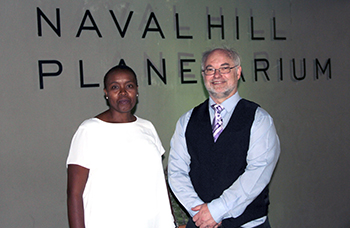Latest News Archive
Please select Category, Year, and then Month to display items
26 November 2020
|
Story Leonie Bolleurs
![]()
Mind Matters is a first for the UFS. It is a mental-health publication for students aimed at highlighting what matters most when it comes to your mind, life, and well-being. Some sections share how individuals in the top echelons of the UFS take care of their minds. Other sections focus on how to support your grey matter (i.e. your brain) and, consequently, improve your general functioning. Some parts discuss matters related to careers, well-being, finance, and self-development. We also provide news and resources that might matter to you.
Whatever your fancy, Mind Matters focuses primarily on why the health of your mind matters. Our minds and brains are the most powerful intelligence or apparatuses on the planet. A power like this needs to be wielded wisely, otherwise we may suffer much from our own neglect of our mental health. It’s not always easy, but it is important!
Mind Matters was possible due to the cumulative contributions, inputs, and work of numerous UFS professionals, especially within
Student Affairs. We are grateful and proud of each person involved. We endeavour to honour these efforts by continually improving and developing Mind Matters. Your feedback and voices are most welcome and will continue to inform what we do next.
An out-of-this-world experience
2015-12-14

Film premiere hosts Professor Matie Hoffman, manager of the Naval Hill Planetarium and the planetarium’s operations manager, Tina Mangope. |
The Naval Hill Planetarium in Bloemfontein premiered two new short astronomy films on 4 December 2015, with marvellous cosmic visuals explaining how the earth and all the planetary formations in our galaxy and the universe were created.
The two films, aptly titled ‘Cosmic Collisions’ and ‘Journey to the Stars’, were both made to enhance people’s knowledge about the universe and the vast dynamics within it. They were donated to the Bloemfontein-based planetarium by the American Museum of Natural History in collaboration with several other US space science intuitions, including the National Aeronautics and Space Administration (NASA).
“These two fantastic state-of-the-art films are scientifically accurate and very expansive,” said Professor Matie Hoffman of the Department of Physics and Astronomy at the University of the Free State. Hoffman is also the planetarium’s manager.
Nestled in the bushy landscape of historic Naval Hill - also home to the iconic statue of Nelson Mandela and the Franklin Game Reserve - the Naval Hill Planetarium was opened in 2013. It is the first digital planetarium in Sub-Saharan Africa, and is situated at the old Lamont-Hussey Observatory Building, which was closed in 1972.